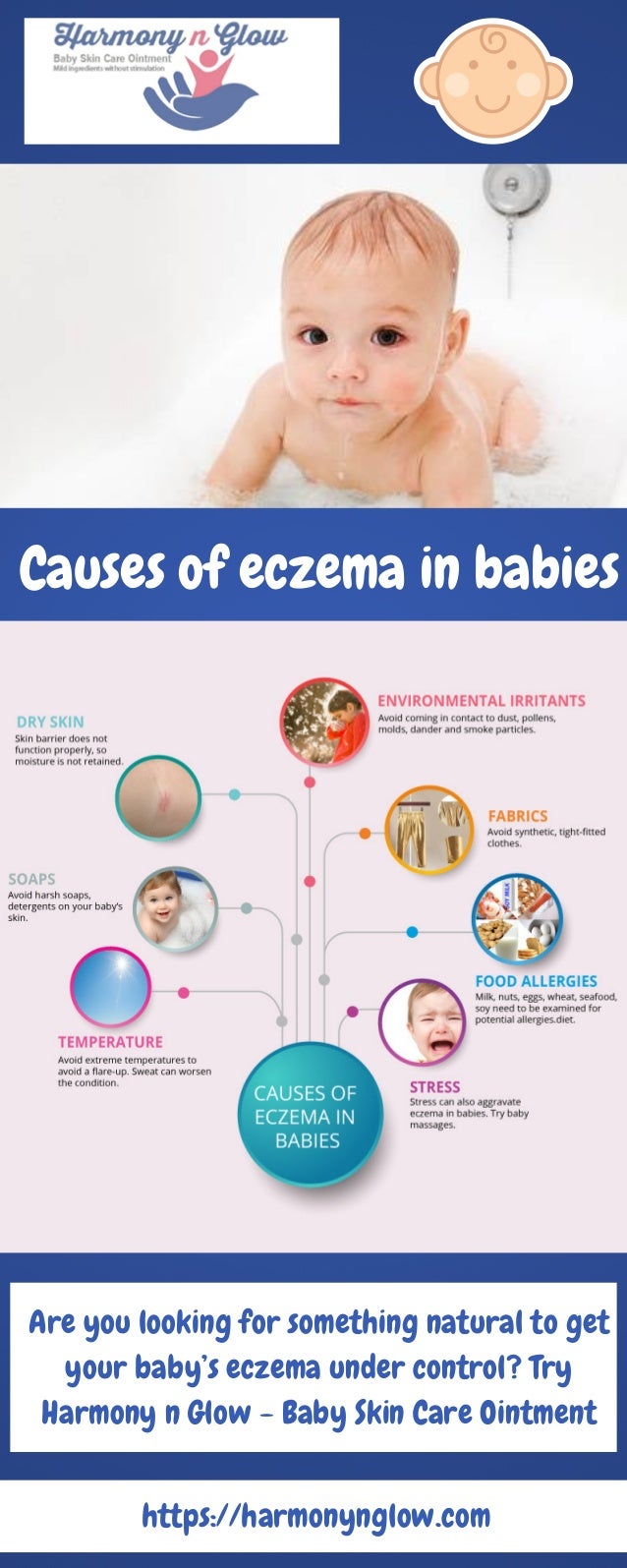What Causes Eczema For Babies
Eczema is a common skin condition that affects people of all ages, including babies. It is a chronic and often itchy condition that can lead to a rash, redness, and inflammation of the skin. Researchers suggest that genetics and environmental factors are the primary causes of eczema in babies. However, other factors such as allergens, irritants, and stress can aggravate the condition and lead to the emergence of eczema symptoms.
Eczema Symptoms

Babies with eczema may have inflamed, red, and itchy skin that can become dry, flaky, and scaly. Additionally, they may develop small, pimple-like bumps that can cause oozing or crusting. These bumps may appear on different parts of the body, including the scalp, face, neck, arms, legs, and diaper area.
It is also important to note that eczema symptoms tend to flare up periodically, which can be influenced by changes in weather, irritants, stress, and other environmental factors.
Treating Eczema in Babies
There are several ways to manage and treat eczema in babies. One of the most effective ways is to keep the skin moisturized using a good quality moisturizing cream or lotion. This helps to reduce dryness and itchiness, which in turn minimizes the chances of eczema symptoms's flares.
Avoiding irritants and allergens is another way to manage eczema. Some common irritants or allergens that can aggravate eczema symptoms include wool, synthetic fabrics, soaps, detergents, and pet dander. Using hypoallergenic products and avoiding exposure to known irritants can help to minimize the chances of eczema flares.
In some cases, doctors may prescribe topical creams or ointments that contain steroids or other medication to manage eczema symptoms. However, these treatments should only be used under the supervision of a medical professional.
Preventing Eczema in Babies
Although it is not always possible to prevent eczema in babies, there are steps that parents can take to minimize their baby's risk of developing the condition.
One of the most important steps is to keep the baby's skin well-moisturized, using gentle, hypoallergenic skin products that are safe for infants. Additionally, parents should avoid exposing their baby to known irritants or allergens, and take steps to manage stress and other environmental factors that may trigger eczema symptoms.
Finally, it is important to maintain a healthy, balanced diet that is rich in nutrients and antioxidants. This can help to boost the immune system and reduce the chances of eczema flares.
Conclusion
Eczema is a common skin condition that affects many babies. Although the exact causes of eczema are not fully understood, researchers suggest that genetics and environmental factors play a significant role. By following a few simple steps, parents can help to manage and minimize the chances of eczema flares in their baby.
Remember, if you suspect that your baby may have eczema, it is important to talk to a medical professional. They can provide a proper diagnosis and recommend the best course of treatment for your baby's specific symptoms.